We all go through tough times or lose interest in keeping up with everything occasionally, but depression is the top of that cliff. While depression is a serious topic which should not be dealt with lightly, work and our responsibilities start to catch up soon.
You can be productive even while facing depression and you should indeed try to be productive as it can prove to be a great escape from depression. But first you need to figure out whether you’re really depressed or are you just burnt out right now.
Disclaimer:
The facts and data presented in this article should not be used to diagnose anyone with depression. If you or someone you know is struggling with depression, please reach out to a mental healthcare professional.
With that being mentioned, here’s our take on the topic.
Pointers to help you understand if you are depressed.
- You can’t snap out of it. Depression is not a choice and can’t be cured overnight.
- Nothing seems worth it anymore. You lose interest in your own hobbies which you previously enjoyed.
- You have lost your charm, smile.
- You’re overwhelmed with guilt and feel helpless.
Note- Even if you relate with all the points above, it is not necessary that you are depressed but is rather a possibility.
In case you are depressed, striving towards being productive might seem impossible and while it’s not going to be easy (nothing is during depression), we’ve broken it down into small actionable steps which can be really helpful.
Here are 10 tips on how to be productive when depressed.
1. Accept your emotions instead of fighting them.

Fighting or suppressing our emotions is the first impulse that kicks in but it can have negative effects on our mental health.
Emotion by the very word means “energy in motion” and just like how stopping a car suddenly by hitting the brakes hard, leaves the tire prints on the road, hitting the brakes on emotions leaves an emotional print on us.
Acceptance often sets us free and sometimes can be the only way to heal and grow as a person. Accepting that you are depressed is the first step towards overcoming it, without this step in place none of the other tips can help you out.
2. Tackle small tasks first by doing the dishes.

Getting things done might seem daunting but we don’t have to start with the big fish, instead we can work our way up to the top.
By tackling small tasks first we are setting ourselves up for success and this is crucial when feeling low as it can provide a sense of achievement. You can start with the dishes, making your bed or cleaning your house. This way you are taking care of the environment around you to have a positive impact on your mood.
Even if it doesn’t provide a sense of achievement, at the very least you got something done, which is going to build up momentum as we go.
3. Eat foods that are healthy and enjoyable.

Food has a great impact on our mood, having the right food at the right time is going to be very advantageous when striving to be productive. “You are what you eat“ is an old saying with authority embedded in it.
What you eat dictates how you feel and thus has control over your emotions, rising up to your thoughts then words and finally your actions. Being aware of your food consumption is a smart way to take full control of your body and mind.
Coming to breakfast, being the most important meal of the day, needs to be packed with energy to have a good start. Research backs up that people who eat a healthy breakfast are less likely to feel depressed or anxious. However, while healthy food is important, so is the likability factor.
If you don’t like what you’re eating, no matter how healthy it might be, it won’t be sustainable. Forcing yourself to eat something will only make things more difficult as we are on a self care journey where we need to be careful of how we’re treating ourselves.
For more details on what exactly to eat, we recommend checking out The Healthline’s post on “6 Foods That Fight Depression”.
4. Exercise everyday starting with 5 minutes.
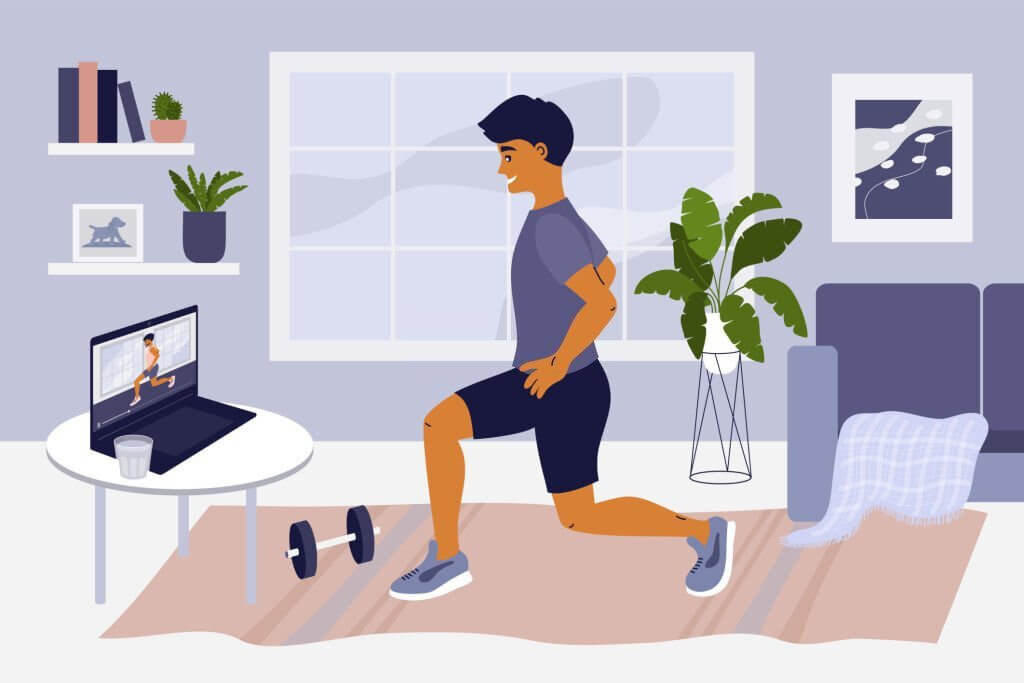
Exercising at first sounds tedious, especially when you don’t feel like doing anything in the first place. But it can prove to be, just the effort that was required from your side to climb out of the mental pitfall.
It is not just about losing weight, but more about your mental and physical health. It helps boost your serotonin levels which can help reduce feelings of depression, while also releasing endorphins which are natural painkillers that make you feel good.
Taking an initiative is important to break out of the loop that you might be stuck in, which is why we are starting with 5 minutes of exercise a day.
With progression you will start enjoying the process and the 5 minutes will eventually bump up to 15, 30, etc. But in case you don’t feel like exercise is for you, we still recommend sticking to some of its light forms for at least 5 minutes.
When you stick to it everyday, for a couple of days, your brain starts signaling to your body that this task is important, i.e., taking care of yourself is important. Which is when internally, you will start prioritizing yourself.
Exercises are great but which form is right for you? We have listed out the different forms of exercises which you can try out in the table below.
| Exercise | Popularity (%) | Effectiveness (%) |
| Lifting weights | 21 | 32 |
| Yoga | 16 | 27 |
| Martial arts | 7 | 26 |
| Outdoor walk | 44 | 11 |
| Swimming | 12 | 4 |
5. Take part in small acts of kindness.

Helping someone else might feel impossible when you’re the one seeking help, but we aren’t talking about donating millions or things in that arena.
Take small steps, small acts of kindness towards others, plant a tree possibly in a sunlit area where it can grow, nurture it just like nature has been nurturing you right from the start. Pass a smile to someone when they least expect it (not recommended in funerals).
When you help someone, it shows that you are of value too. This slowly kills out any limiting beliefs of feeling worthless or not being good enough.
6. Turn your self-destructive urges around.
When we are depressed, all the negativity, everything that’s wrong screams out to us. The more we ignore it, run from it, the more it stings and follows us.
We fall prey to self-destructive thoughts and find ourself stuck in a self-fulfilling cycle. But how do you know for sure if you are self sabotaging yourself or just going through a rough patch?

Our mind is something very powerful beyond the full comprehension of even science at the very moment. But one thing we know for sure is, we can’t tell our brain not to do something. We can only direct its focus to a different direction.
Taking this into consideration you can use your self-destructive thoughts to your advantage by turning them into healthy ones.
For example, when you don’t feel like going out because what’s the point, direct the same question towards staying inside, i.e., what is the point in staying inside either. Now since staying inside seems pointless too, heading out doesn’t seem so bad.
7. Don’t focus on Perfection.
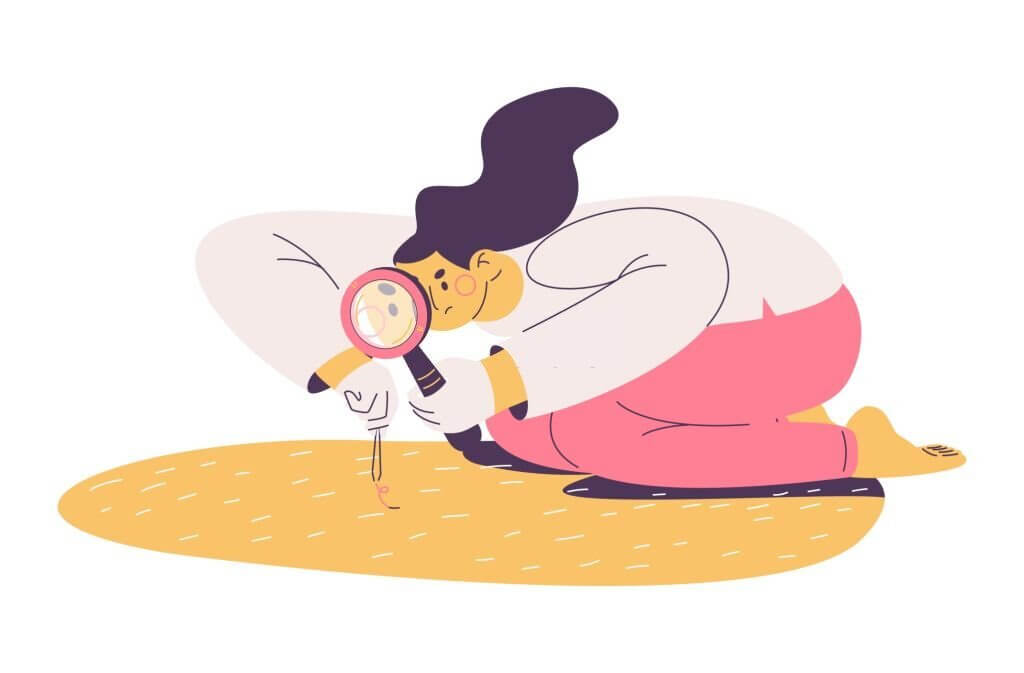
Productivity is a good tool in the arsenal as long as it’s within a defined and controlled range. What some people get wrong about productivity is that it means being perfect in what we do, which is simply not true.
Practice doesn’t make perfect but it sure does make you better. That’s the goal with productivity, to be better than what we were before. Aiming for perfection is not a bad thing but beating yourself up when you don’t achieve it, is what’s wrong.
Perfection is a myth and we are all flawed in our own ways, when you realize this and accept it for what it truly is, it sets you free from the burden. You will find yourself doing things at ease knowing that even if you mess up, it’s still going to be fine. Just the will to improve and enacting on it is necessary.
It can be difficult to realize when to stop, which is why we encourage you to check out the latest article on Toxic Productivity, where we list out its dangers and how to recognize it.
8. Find your escape through meditation.
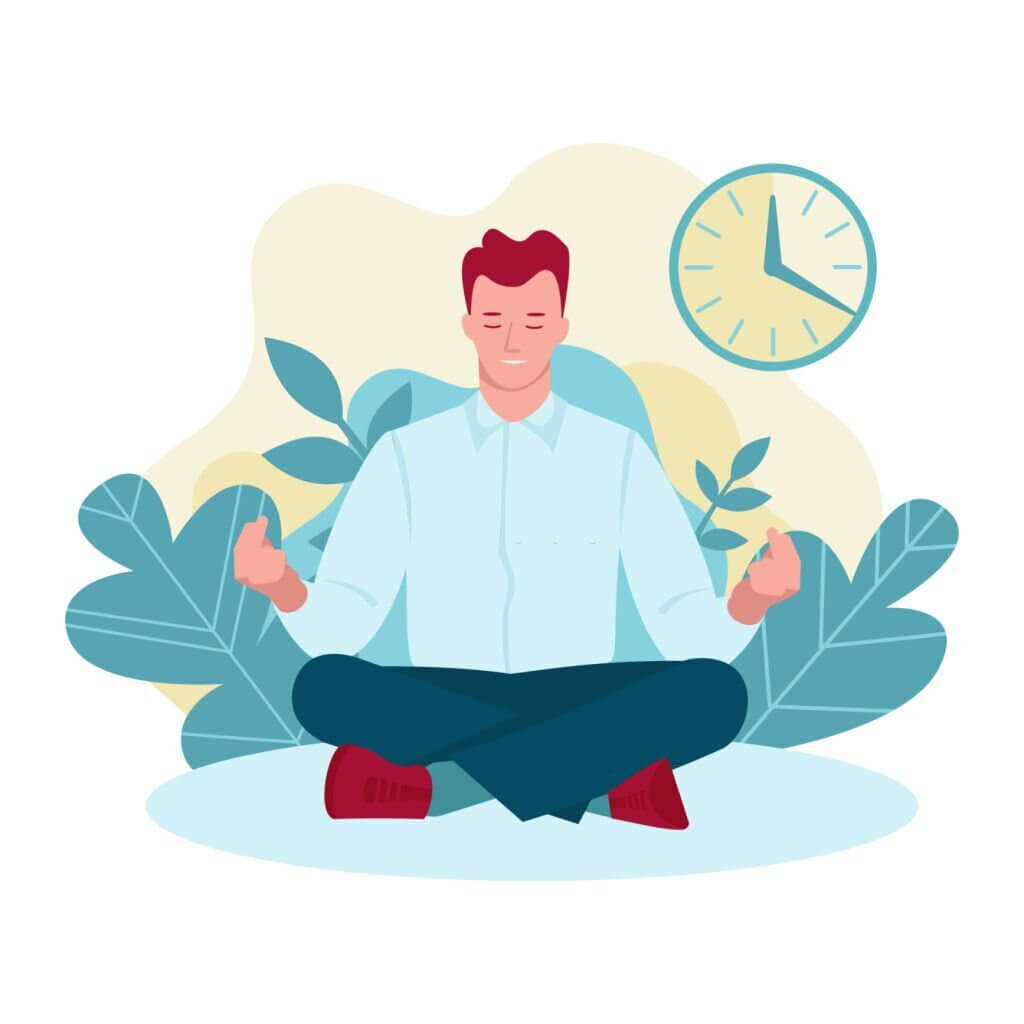
You have gone through the above steps and yet you still might feel a void inside you, a feeling of emptiness, no matter how many activities you indulge yourself into.
To tackle this for good, you need to face your thoughts, your sense of void without judging it. Don’t cloud yourself with why you shouldn’t feel like this or this particular thought or feeling is wrong, just observe it for what it is.
This shows you the nature of your thoughts which were there all along but you just never noticed them before. Now you may have a skeptical opinion on meditation, but the best way to find out is by completely submerging yourself into it and trying it out.
Taking care of your mental health is important and we can do this in multiple ways, so we wrote an article on Productivity Affirmations to guide you through this process, listing out its benefits and how to implement them.
9. Slowly tap out of your comfort zone.
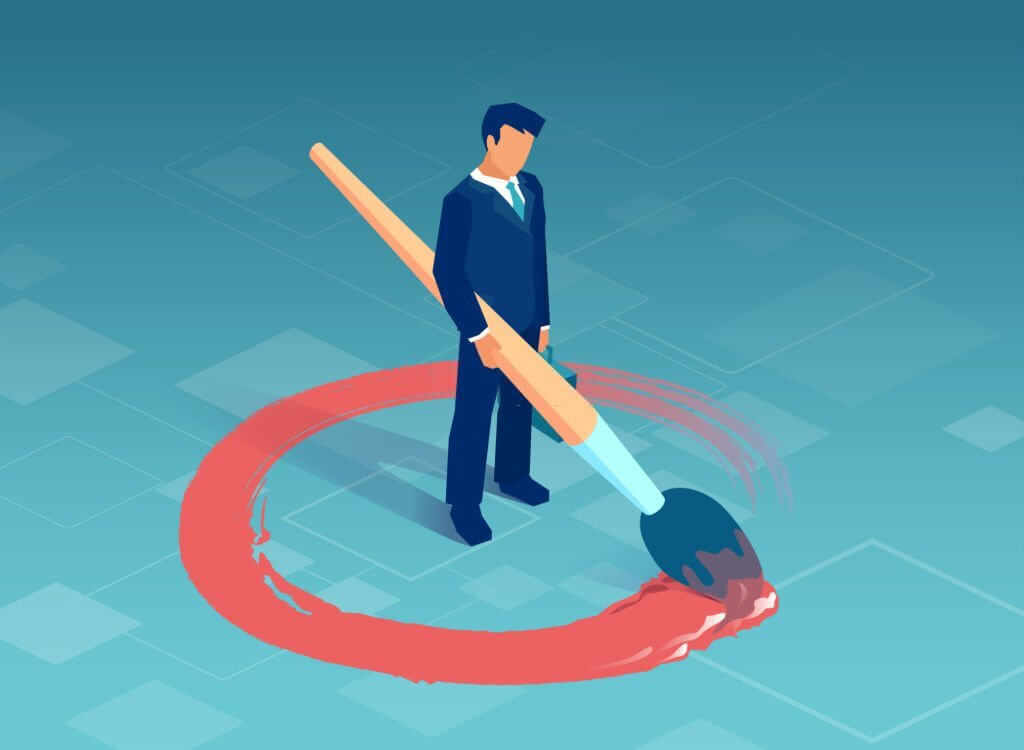
Having the same routine play out everyday can be rough, where you may start to feel that there’s nothing much left to see or nothing new ever happens.
The harsh truth is nothing will, until you make it happen. It is very easy to fall prey to your comfort zone and get cozy and comfortable in it. But it has a very negative effect on the mood and perception of things.
Comfort zone isn’t something which can be changed in a flip of a switch and even if we could, we actually should resent doing it.
Trying to change your comfort zone drastically may not only be more difficult and challenging but it also brings forward a question of authenticity. How much can you change about yourself without losing your originality, your core beliefs?
The easiest way to go about it is to slowly tap out of your comfort zone like testing the ground before you, to check whether you can move ahead or will have to go through a different route. This ensures that you still have your core beliefs and uniqueness intact, while making progress in expanding your comfort zone.
A good rule is to expand your comfort zone by 10% every month, try out different activities but don’t go too far with it.
10. Find your depression’s trigger point.
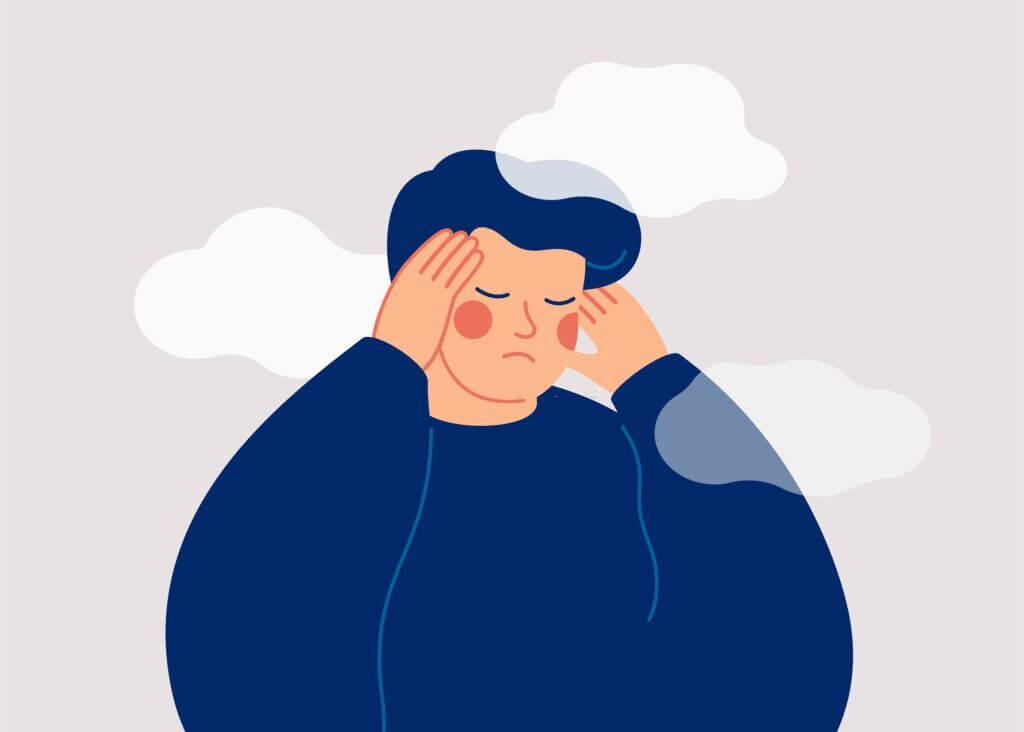
At this point you have gone through every mental aspect, physical activities which can play out and help against depression, so take a moment of appreciation for taking action as many don’t.
You might have formed certain new habits in this process and started enjoying them, but now it’s time for the final nail in the coffin of depression. This is the most important and difficult step of all as without this you can still relapse into depression, because up until now we have been hitting the symptoms but now it’s time to hit the cause of the problem.
You need to sit down and focus on what events took place until now, track back to the first sense of guilt, helplessness, the event which started the butterfly effect which has led you down to this rabbit hole of depression.
Knowing that imperfection is usual, bad and good times both run their courses, you need to look at that cause and ask yourself, would you still react the same way that you did earlier or will you change something about it.
Wrapping Up!
Productivity is very much achievable even while depressed, as we went through the steps of acceptance, the helpful activities, knowing where to stop and the right mindset, which collectively not only makes you productive but possibly opens you up to anti-depressive nature and outlook towards things.
Frequently Asked Questions
Does depression make you lazy?
There are factors suggesting that depression does make you lazy. However, depression and laziness are not the same thing. Laziness is often an aftereffect of depression and can be changed. Depression on the other hand takes more time and is not fixed easily.
Is work good for depression?
As a general rule, anything that takes your mind off depression is good, that includes work. Motivating yourself to work can be difficult while depressed but having the right mindset can go a long way as work can prove to be the distraction you need.
Why does depression make it hard to concentrate?
Depression causes lack of motivation and will, which makes it harder to concentrate. Moreover it affects a person emotionally and drowns them with guilt, with such emotions at hand eventually it becomes impossible to focus and concentrate on things.

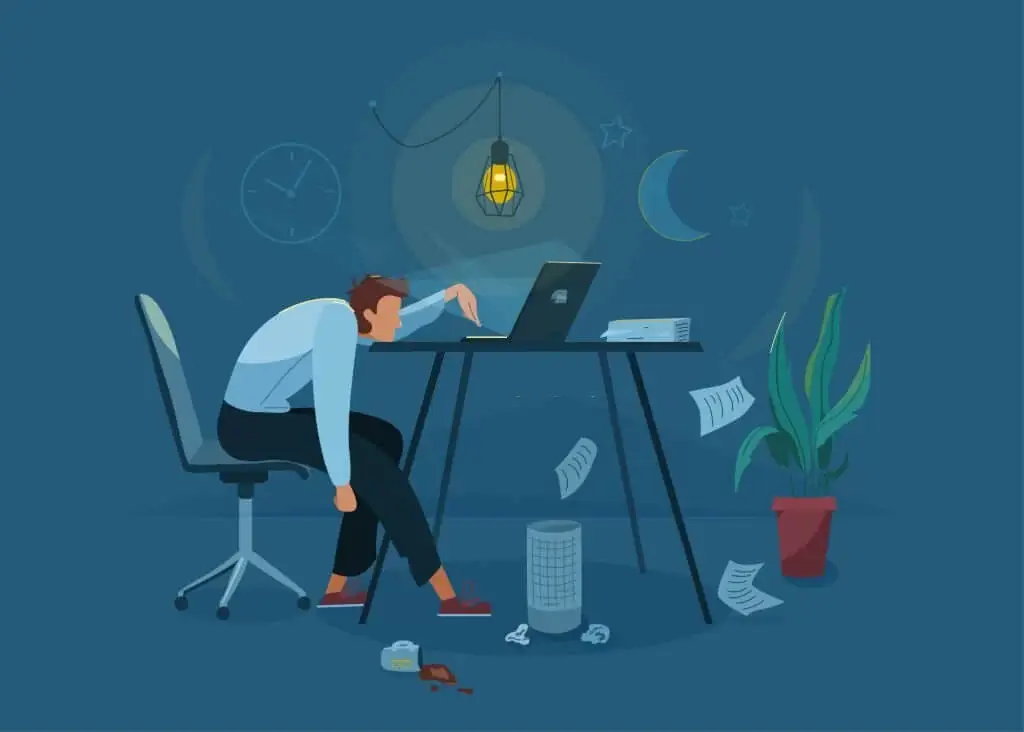
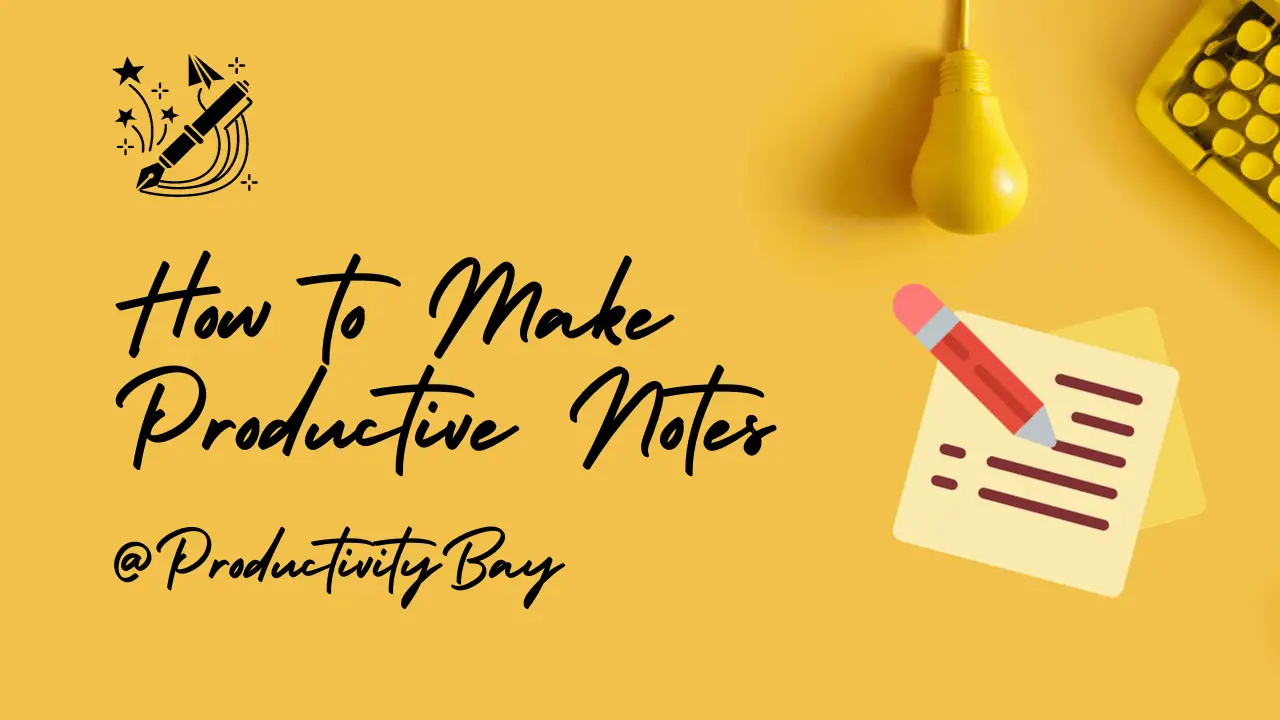
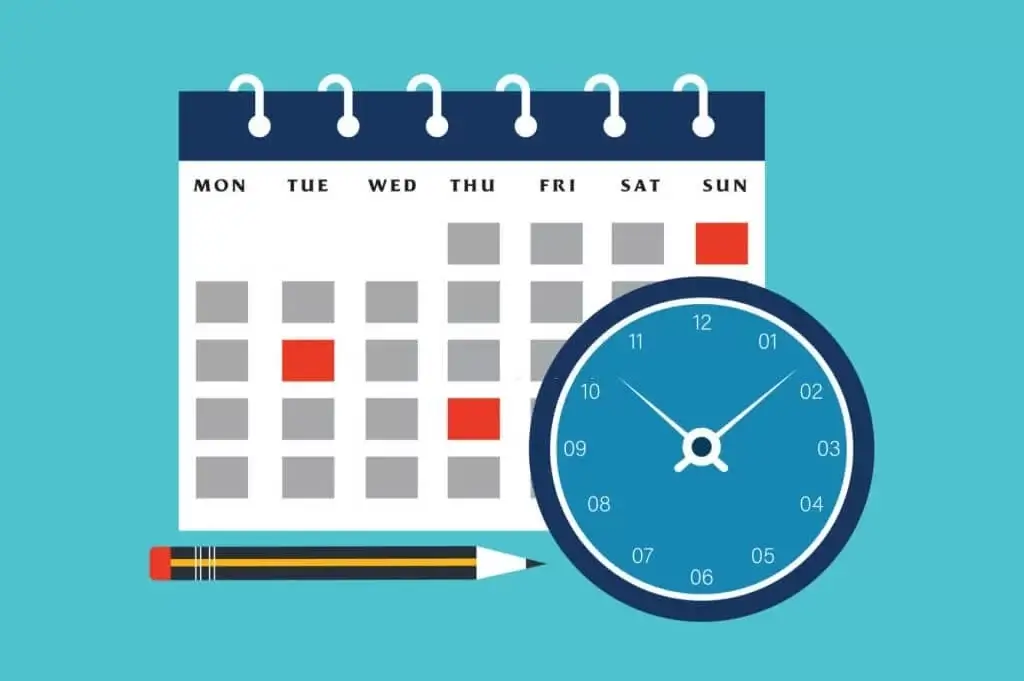

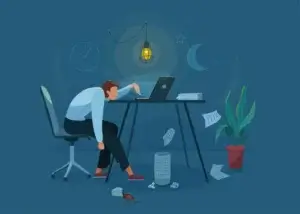




Leave a Reply